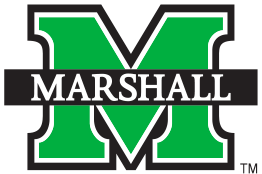KIARAH FARLEY
Oral History Interview
Student Reflection
When I was editing the oral history, I learned many things with the Story Corps app, because I had to fix the bugs in the system when I uploaded. When I was on my phone, I learned that I could not upload the oral history, because the file was too large to completely sync up with their software. With that, I had to completely re-record my entire report on to my MacBook and then I added background music and cut my rough out of the oral history report through memos, which I had to watch a video on how to do that. This project got me out of my comfort zone with using technology, because I am not used to using the editing materials on my laptop. The most enjoyable part of the editing process was to hear the finished product when I got it finally completed.
One thing that I learned that I did not know about is that the patients were getting higher rates of pulmonary embolisms. What happens when a patient has a pulmonary embolism there is a blockage to the main artery in the lung, that causes chest pain, shortness of breath, and coughing. Another thing that I learned is that, some people in the Covid bay never really made a complete recovery and were forced to stay in that med bay, because the nursing homes wouldn’t allow them back into their care. Which seemed quite cruel to me, because those people were essentially put into Covid med bay even if they had the slightest hint of breathing issues that resembled the Covid virus.
Even though the class learned about oral history, how they were formatted, and performed, I thought it was a very alien experience. I never really conducted an interview before this one, and I felt very out of place. I am used to non-formal interactions with people I know and to have them speak about their experience in such a formal manner really opened my eyes. Even though I would never choose to do another oral history again, I finally understand the intense prep work and editing that goes into a well-done oral history.
This Oral history project does mainly focus on the metacognitive learning style, because you plan your questions, where you will be, what you will be talking about, and who you are talking to. Then with that plan you go into the interview and try to expel that plan as best you can. After the interview, you go back and see what you can fix on your next interview. Then there is also some aspect inquiry learning style, because you go into the interview with your questions and your hypothesis on what you already know, then you take the new information added by the interviewee, and then you try and understand the whole story with both the conclusion of your previous finding and the new information you learned from the interview.
I really don’t have any real suggestions, but I hope that the next group who does their oral history, is a part of a time, where the topics aren’t as depressing. This topic choice was hard to do, because both of the topic choices were of something that has affected this country in many negative ways, and then we had to ask people involved to relive those experiences. I just hope that the next set of students can speak about something uplifting and more positive that this country or any country is involved in.
My advice would be, if you are doing a depressing topic, try and ask about the little victories that the interviewee had experienced, especially after you talk about something sad, try to make the interview somewhat uplifting. Also, record it onto your laptop memos, so that it is easier to edit. I learned the hard way by doing it though my phone and then having to redo all of my work again. I think that it would be best if you do your interview in person (if possible), because the audio quality is so much better.
This oral history report shows the aspects of what you learn in inquiry based thinking, because when every student chose their topic, each one of use new something about our topic in one way or another. Then when we made our questions, we had a hypothesis of how the meeting will go. When that interview is over we take the knowledge that we already knew and the new information learned to get the complete deduction on what is important to know with the topic.

